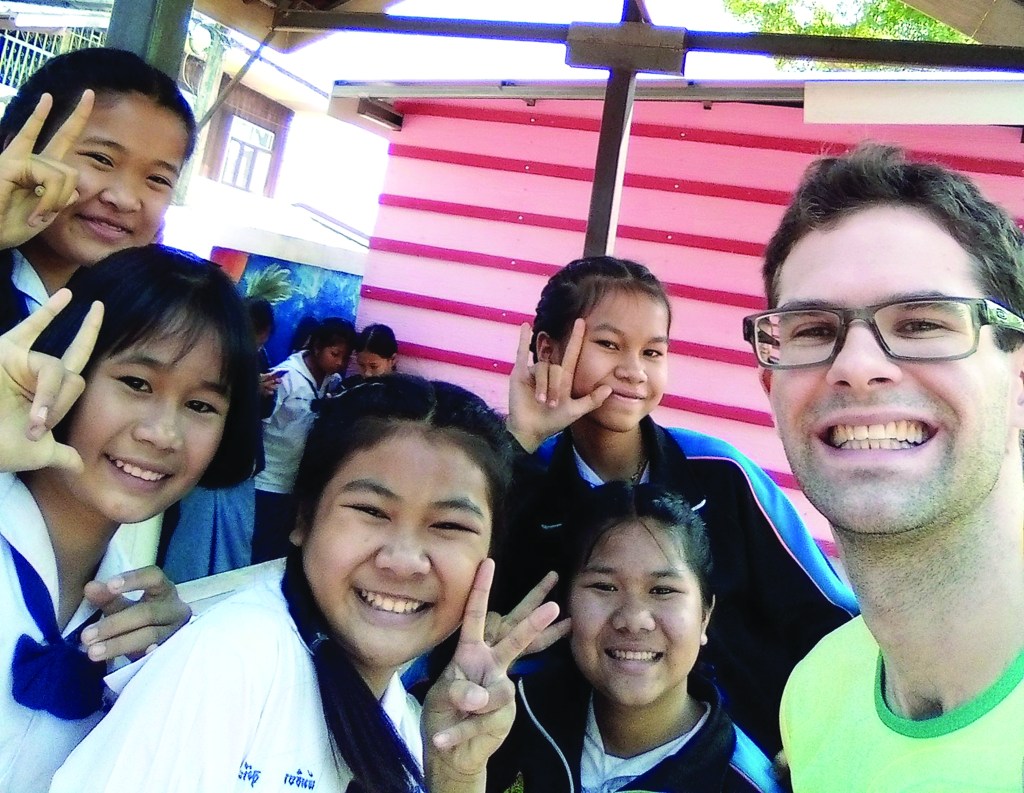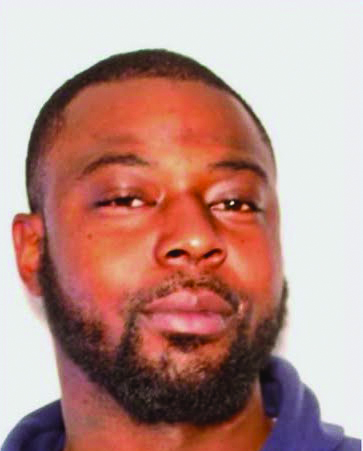Local grad student learns the value of community through the Peace Corps
Published 10:30 am Saturday, February 27, 2021

- Tim Connors spending time with some of his sixth-grade students at the school in Bantonphueng, Thailand.
Tim Connors reflects on the person he was prior to spending two years serving in the Peace Corps.
Trending
“I was very much an individualist, the sort of person who wants to do everything on his own; everything is about efficiency and getting things done,” said Connors.
Unsurprisingly, Connors’s experience in the Peace Corps had a profound effect on him and how he sees the world around him.
“You end up learning a lot about community,” said Connors.
Connors is currently a graduate student seeking a master of fine arts degree in creative writing at Georgia College. He arrived in Milledgeville last July, just a few months after returning from his time overseas. Prior to the Peace Corps, Connors had spent his entire life living in his native Massachusetts. After obtaining a degree in neuroscience, he discovered that working in a lab was not for him, so he entered a master’s program in composition and rhetoric. While in that program, Connors gained experience teaching, including teaching English to non-native speakers. It was this skill set that ultimately launched his journey into his Peace Corps adventure.
Connors had long felt a pull to spend time abroad.
“It was always something I wanted to do but had kind of been afraid to,” said Connors. “The Peace Corps already had a lot of infrastructure in place, and they also do a good job with teaching you the language, teaching you about the culture; I liked that structure.”
Trending
Through the application process, the Peace Corps looked at the program’s needs and matched them to Connors’s skill sets. He was then selected to go to Thailand to teach English to schoolchildren. Connors began doing research online and worked through the resources and training modules sent to him by the Peace Corps. Then, his real adventure began.
Connors went to California for a brief “meet and greet” with other program volunteers before boarding a 20-hour flight to Bangkok.
“You get to know people through that. It’s a long flight,” said Connors with a laugh.
Upon arriving in Thailand, the group spent two weeks going through intensive training that included language and culture lessons, vaccinations and logistical interviews to ensure each volunteer was up to the challenges they would face in the program. Then, it was time for the ceremony to match each volunteer to a host family.
Connors spent the next three months living with his host family, an experience he admits was scary at first with his limited Thai language skills. During those months, Connors continued program training at the Peace Corps while immersing into daily Thai life with his host family.
“You get this good mix of the home life where you’re hearing the language constantly and seeing real Thai people interact and just be people, but then also getting all of the supplemental language and cultural instruction,” said Connors.
After his intensive training, Connors was sent to the Fang province in northern Thailand, to a rural area with lots of farmland for rice, onions, strawberries, oranges and corn. He was set up with another host family there, and while his language skills were much better at that point, he had to adjust to the regional dialect of the area.
Upon arriving in Fang, Connors lived on an orange farm. He interacted with several laborers and their children, some of whom were migrants who had immigrated from Myanmar to Thailand. During the days, he helped pick and crate oranges, and in the evening, he began teaching English to the laborers’ children. Also during this time, Connors met with teachers from the local school where he would soon teach. The school director even drove him around the small town of Bantonphueng to introduce him to locals.
When the school year began, Connors’s real work started. Working closely with his two Thai counterpart teachers, Connors taught English to students in grades one through six. Connors describes the arrangement as a symbiotic one where the Thai teachers acclimated him to the culture of the school while he showed them new and different teaching methodologies.
“The idea is, I’m not just there to be a teacher; I’m there to help them become better teachers,” said Connors. “They’re used to very strict teaching, and I’m trying to teach more of like a student-centered approach. My counterparts were very open-minded and were willing to try.”
Connors describes his daily interactions with the local residents, including the students, other teachers, town residents, his host family and the orange farm laborers, as a fundamental part of his time in Thailand.
“I really liked the culture,” said Connors. “It was important to people to talk to one another and just kind of be with one another. I really liked that community and just that sense of being able to chat and it being very relaxing.”
While he admits it could be isolating at times to be somewhere so different from his home culture and it could be tiring to be stared at by locals as the lone white man in town, Connors enjoyed getting to compare worldviews with the locals and getting to know them. He describes the predominantly Buddhist culture of the area as very tolerant and interested in other people. Connors also describes the local Thai food as delicious and among the most flavorful food he has ever enjoyed.
Though the onset of the COVID-19 pandemic cut short his plans to travel to neighboring countries before his return stateside, Connors said he is thankful for the profound impact his two years in Thailand had on how he views the world.
“It taught me patience and perseverance,” said Connors. “I started to feel a lot more community-oriented. Our lives are just a lot fuller when we’re focusing on the people around us and trying to include them in our lives.”





